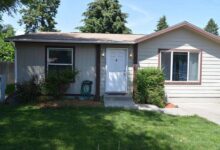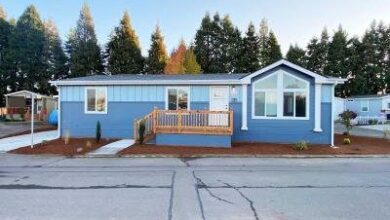Nashville Homes for Sale: Finding Your Dream Home
Nashville Homes for Sale – Welcome to our comprehensive guide on Nashville homes for sale. Whether you are a first-time homebuyer or looking to relocate to Music City, this article is your go-to resource for all things related to finding your dream home in Nashville. From exploring the diverse neighborhoods to understanding the local real estate market, we will cover everything you need to know to make a well-informed decision. So, let’s dive in and discover the perfect home that suits your needs and preferences in the vibrant city of Nashville.
Exploring Nashville’s Neighborhoods
When searching for your dream home in Nashville, it’s essential to consider the different neighborhoods that make up this lively city. Each neighborhood has its own unique charm and character, offering a variety of amenities and housing options. Let’s take a closer look at some of the most popular neighborhoods in Nashville:
1. East Nashville: A Hip and Artistic Community
Located just across the Cumberland River from downtown Nashville, East Nashville has become a trendy and sought-after neighborhood. Known for its vibrant music scene, eclectic shops, and diverse dining options, this area appeals to young professionals, artists, and musicians. With a mix of historic homes and newly constructed properties, East Nashville offers a range of housing options to suit different tastes and budgets.
2. Germantown: Historic Charm with Modern Flair
Germantown, one of Nashville’s oldest neighborhoods, is a blend of historic architecture and contemporary developments. This walkable neighborhood is known for its charming Victorian homes, tree-lined streets, and a thriving culinary scene. With its proximity to downtown Nashville and easy access to parks and green spaces, Germantown attracts residents who appreciate a mix of old-world charm and modern amenities.
3. Green Hills: Luxury Living and Upscale Shopping
If you’re seeking a more upscale and luxurious lifestyle, Green Hills is the place to be. This affluent neighborhood offers beautiful estates, upscale condos, and stylish townhomes. Apart from its prestigious residential properties, Green Hills is also home to the upscale Mall at Green Hills, featuring high-end retailers and designer boutiques. With its proximity to some of Nashville’s top schools and medical facilities, Green Hills is a popular choice for families and professionals.
4. The Gulch: Urban Living with a Modern Twist
Situated just south of downtown Nashville, The Gulch is a trendy and vibrant neighborhood known for its modern apartment complexes, trendy boutiques, and popular restaurants. This trendy and walkable district attracts young professionals and urban enthusiasts who appreciate the convenience of city living. The Gulch offers a mix of sleek condos, lofts, and townhomes, providing a range of housing options for those seeking an urban lifestyle.
5. Sylvan Park: Quaint Suburban Living
Nestled between West End and Charlotte Pike, Sylvan Park offers a charming suburban atmosphere with easy access to Nashville’s urban amenities. This family-friendly neighborhood is known for its tree-lined streets, cozy bungalows, and local parks. With a strong sense of community and a variety of local businesses, Sylvan Park provides a peaceful retreat from the bustling city while still being conveniently located near downtown Nashville.
These are just a few examples of the many neighborhoods Nashville has to offer. Each neighborhood has its own unique vibe and amenities, so it’s worth exploring them further to find the one that aligns with your lifestyle and preferences.
Understanding the Nashville Real Estate Market
Before diving into your home search, it’s crucial to have a solid understanding of the Nashville real estate market. Being aware of the current trends, average home prices, and factors that influence the market will empower you to make informed decisions. Here’s what you need to know:
1. Market Trends and Insights
The Nashville real estate market has experienced significant growth in recent years, attracting buyers from all over the country. Understanding the market trends, such as inventory levels, days on market, and price fluctuations, will help you gauge the competitiveness of the market and make strategic decisions.
2. Average Home Prices
As with any real estate market, home prices in Nashville vary depending on factors such as location, size, and condition. Researching the average home prices in the neighborhoods you’re interested in will give you a realistic idea of what to expect and help you set a budget for your home search.
3. Factors Influencing the Market
Several factors impact the Nashville real estate market. These factors include population growth, job opportunities, local amenities, and infrastructure development. Analyzing these factors will give you insights into the long-term appreciation potential and desirability of certain neighborhoods.
4. Working with a Real Estate Agent
Having a knowledgeable and experienced real estate agent by your side is invaluable when navigating the Nashville market. A skilled agent can provide you with up-to-date market information, guide you through negotiations, and help you find properties that align with your needs and budget.
Working with a Real Estate Agent
When it comes to finding your dream home in Nashville, having a qualified real estate agent by your side can make all the difference. Here’s why working with an agent is essential:
1. Expertise and Local Knowledge
A reputable real estate agent possesses in-depth knowledge of the Nashville market, including neighborhoods, schools, amenities, and future development plans. They can provide you with valuable insights and guide you towards the best areas that align with your preferences.
2. Access to Off-Market Listings
Experienced agents often have access to off-market listings, which are properties not publicly advertised. These exclusive opportunities can give you a competitive edge in finding your dream home, as you’ll have access to properties before they hit the market.
3. Negotiation Skills
Negotiating the best deal requires skill and expertise. A real estate agent can navigate negotiations on your behalf, ensuring you secure the best possible price and terms for your new home. Their knowledge of market trends and comparable sales will be invaluable during this process.
4. Streamlining the Homebuying Process
Buying a home involves numerous steps, paperwork, and deadlines. A real estate agent will guide you through the entire process, ensuring all necessary documents are completed accurately and on time. They can also recommend trusted professionals, such as lenders and inspectors, to streamline the process further.
Financing Your Nashville Home
Securing financing is a crucial step in the homebuying process. Here’s what you need to know about financing your Nashville home:
1. Mortgage Options
There are various mortgage options available to homebuyers in Nashville. From conventional loans to government-backed FHA and VA loans, understanding the different types of mortgages and their eligibility criteria will help you choose the best fit for your financial situation.
2. Pre-Approval Process
Before starting your home search, it’s recommended to get pre-approved for a mortgage. This involves providing your financial information to a lender who will assess your creditworthiness and provide you with a pre-approval letter. Having a pre-approval letter in hand will strengthen your offer when you find your dream home.
3. Down Payment and Closing Costs
When purchasing a home, you’ll need to consider the down payment and closing costs. The down payment is a percentage of the home’s purchase price that you pay upfront, while closing costs include fees for services such as appraisals, inspections, and title insurance. Understanding these costs will help you plan your budget accordingly.
4. Working with a Mortgage Lender
Choosing the right mortgage lender is crucial for a smooth financing process. Research different lenders, compare interest rates, and customer reviews to find a lender that offers competitive rates, excellent customer service, and a streamlined application process.
Searching for Nashville Homes Online
In today’s digital age, online platforms play a significant role in the homebuying process. Here’s how to effectively search for Nashville homes for sale online:
1. Utilize Real Estate Websites
Real estate websites such as Zillow, Realtor.com, and Redfin offer comprehensive listings of homes for sale in Nashville. Utilize the search filters to narrow down your options based on your desired criteria, such as price range, number of bedrooms, and amenities.
2. Virtual Tours and Photos
Take advantage of virtual tours and high-quality photos available on real estate websites. These tools allow you to get a feel for the property without physically visiting it, saving you time and effort. Virtual tours provide a 360-degree view of the home, allowing you to explore each room in detail.
3. Sign Up for Email Alerts
Subscribe to email alerts on real estate websites to receive notifications about new listings that match your criteria. This way, you’ll stay updated on the latest properties and have a better chance of finding your dream home before others do.
4. Work with a Real Estate Agent
A real estate agent has access to the Multiple Listing Service (MLS), which provides comprehensive and up-to-date informationon available homes in Nashville. By working with an agent, you can receive personalized listings that meet your specific requirements and preferences. They can also help you navigate through the online listings, ensuring you don’t miss out on any potential opportunities.
Attending Open Houses and Showings
Once you’ve identified potential homes through online searches, attending open houses and showings is the next step. Here’s how to make the most out of these visits:
1. Prepare a Checklist
Before attending open houses or showings, create a checklist of your must-haves and preferences. This will help you stay organized and focused during your visits. Note down specific features, such as the number of bedrooms, bathrooms, yard space, and any other amenities that are important to you.
2. Take Notes and Photos
As you explore different properties, take notes and photos to help you remember the details. Pay attention to the condition of the home, any potential maintenance issues, and how well it aligns with your checklist. These notes and visuals will be valuable when comparing properties later.
3. Ask Questions
Don’t hesitate to ask the listing agent or seller questions about the property. Inquire about the age of major appliances, recent renovations, and any known issues or repairs. Understanding the history and condition of the home will give you a better idea of what to expect if you decide to move forward with an offer.
4. Explore the Neighborhood
While visiting open houses, take the opportunity to explore the surrounding neighborhood. Walk or drive around the area to get a sense of the community, nearby amenities, and the overall atmosphere. Consider factors such as proximity to schools, parks, shopping centers, and transportation options.
Making an Offer and Negotiating
Once you’ve found the perfect Nashville home, it’s time to make an offer and negotiate the terms. Here’s what you need to know:
1. Understand Market Value
Before submitting an offer, research the market value of similar properties in the area. This will help you determine a fair and competitive offer price. Your real estate agent can provide you with comparable sales data to support your offer.
2. Craft a Strong Offer
When making an offer, consider including contingencies such as a home inspection, appraisal, and financing. These contingencies protect your interests and give you the opportunity to renegotiate or withdraw your offer if any issues arise during the due diligence process.
3. Negotiate with Care
Negotiating is a normal part of the homebuying process. Work closely with your real estate agent to strategize and present counteroffers effectively. Remember to focus on your priorities and be willing to compromise on non-essential items to reach an agreement that benefits both parties.
4. Review the Purchase Agreement
Once your offer is accepted, carefully review the purchase agreement with your agent or attorney. Ensure all the terms and conditions are accurately reflected, including the purchase price, contingencies, and any additional agreements made during negotiation.
Home Inspections and Due Diligence
Before finalizing your purchase, it’s crucial to conduct thorough inspections and due diligence to ensure there are no hidden issues with the property. Here’s what you need to know:
1. Hire a Qualified Home Inspector
Engage a qualified and licensed home inspector to thoroughly assess the condition of the property. The inspector will identify any potential issues, such as structural problems, plumbing or electrical concerns, or signs of water damage. Review the inspection report carefully and discuss any significant findings with your agent.
2. Additional Inspections
In addition to a general home inspection, you may want to consider specialized inspections based on the property’s characteristics. For example, if the house has a pool, consider a pool inspection. If there are concerns about the foundation, consult with a structural engineer. These additional inspections provide a more comprehensive understanding of the property’s condition.
3. Review Disclosures and Reports
Review any seller disclosures and reports provided by the seller, such as pest inspections, roof inspections, or past repairs. These documents can shed light on the property’s history and potential issues that may need further investigation or consideration.
4. Addressing Inspection Findings
If the inspection reveals significant issues, discuss with your agent about potential next steps. You may negotiate repairs or request credits from the seller to cover the costs of addressing the issues. Your agent will guide you through this process and ensure your interests are protected.
Closing the Deal and Moving In
Congratulations! You’re nearing the final stages of the homebuying process. Here’s what to expect during the closing process and tips for a smooth transition into your new Nashville home:
1. Prepare for Closing Costs
Closing costs typically include fees for loan origination, title search, title insurance, and attorney fees. Review the closing disclosure provided by your lender to understand the breakdown of these costs. Plan ahead to ensure you have the necessary funds available to cover these expenses.
2. Review Closing Documents
Prior to closing, you will receive a stack of documents to review and sign. These documents include the loan agreement, deed, and various disclosures. Take the time to carefully read and understand each document. If you have any questions or concerns, consult with your attorney or agent for clarification.
3. Conduct a Final Walk-Through
Before closing, schedule a final walk-through of the property to ensure it’s in the agreed-upon condition. Verify that any repairs negotiated during the inspection period have been completed satisfactorily. This is also an opportunity to ensure all personal belongings of the seller have been removed.
4. Change Utilities and Update Address
Prior to moving in, contact utility providers to transfer or set up new accounts for services such as electricity, water, and internet. Additionally, update your address with the post office, financial institutions, and any other necessary entities to ensure a smooth transition.
Settling into Your New Nashville Home
After the excitement of closing, it’s time to settle into your new Nashville home. Here are some tips for a smooth transition:
1. Unpack and Organize Efficiently
Start by unpacking essentials and gradually work through the remaining boxes. Prioritize setting up essential rooms such as the bedroom, kitchen, and bathroom. Create an efficient organization system to make settling in easier and minimize clutter.
2. Connect with the Community
Engage with your new community by attending local events, joining neighborhood associations, or participating in community activities. Building relationships with your neighbors and getting involved in local initiatives can help you feel more at home in Nashville.
3. Explore Nashville’s Amenities and Attractions
Take advantage of Nashville’s vibrant music scene, diverse culinary options, and cultural attractions. Explore local parks, visit museums, attend live music performances, and try out the city’s famous hot chicken. Immerse yourself in the unique experiences that Nashville has to offer.
4. Personalize Your Space
Make your new house feel like a home by adding personal touches. Decorate with artwork, family photos, and furniture that reflects your style and personality. Create a cozy and inviting environment that you look forward to coming home to each day.
In conclusion, finding your dream home in Nashville requires careful research, effective planning, and the guidance of a qualified real estate agent. By exploring the various neighborhoods, understanding the local market, and conducting thorough due diligence, you’ll be well-equipped to make informed decisions. With patience and the right resources, you’ll soon be settling into your new home in the vibrant city of Nashville. Best of luck on your homebuying journey!









